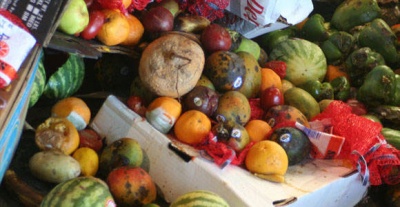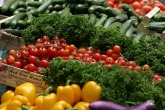New Italian food waste reduction law renews pressure on UK to follow suit
A new Italian farm-to-fork food waste law that the government hopes will work quickly enough to see surplus food redistribution double by the end of this year was passed by country’s Senate on Tuesday (2 August).
 The 'Sprechi alimentari' law, which involves measures to cut food waste levels from consumers all the way up to large-scale retailers and agricultural organisations, passed through Senate with 181 votes in favour, 16 abstentions and just two votes against and follows the unanimous agreement of the French parliament to impose food waste regulations on supermarkets earlier this year.
The 'Sprechi alimentari' law, which involves measures to cut food waste levels from consumers all the way up to large-scale retailers and agricultural organisations, passed through Senate with 181 votes in favour, 16 abstentions and just two votes against and follows the unanimous agreement of the French parliament to impose food waste regulations on supermarkets earlier this year.
However, unlike in France, where supermarkets that do not sign up to agreements to donate surplus food will be fined, the Italian law takes a less punitive approach to food waste redistribution, instead making it easier for supermarkets to donate their unused food to community groups.
Under the law, tax cuts relative to the amount of food redistributed will be provided to supermarkets to simplify the task of redistributing food to non-governmental organisations and public authorities.
It also permits supermarkets to redistribute unsold food and food that has been incorrectly packaged, as long as the packaging mistakes do not misinform the consumer about substances that may cause allergies or intolerance, and donate food that has passed its sell-by-date, providing it will not cause harm to the consumer.
According to Maurizio Martina, Italy’s Minister of Agricultural, Food and Forestry Policies, food waste costs the Italian economy €12 billion (£9.4 billion) each year. Every year, 550,000 tonnes of food is recovered and distributed to those in need. The bill, he hopes, will see this figure almost double to one million tonnes by the end of 2016.
Red tape and doggy bags
As well as reducing limits on what can be redistributed, the food donation process has been simplified as previously each donation had to be recorded individually, and intention to donate a batch of food had to be declared five days before the actual transaction. Under the new law businesses this lead-in time has been disposed of and retailers will have to submit just one form each month for all donations made.
A significant improvement has also been made in terms of the redistribution of agricultural produce, as agricultural organisations are now able to directly redistribute food that has not been sold to those in need without incurring any costs.
At the consumer level, the law helps reduce food waste through better communication to the public about eating habits and by promoting the use of ‘family bags’ in restaurants (a more palatable term for the ‘doggy bag’ – an idea used in France to get over the ‘cultural obstacle’ of doggy bags). Taking home food from a restaurant is similarly uncommon in Italy, but the government hopes that a €1 million (£850,000) campaign will change this. Restaurants will now be required to make such bags available, which the non-profit Good Meal says could save up to seven million meals every day.
The Ministry of Environment will also have a budget of €1 million every year until 2018 to finance innovative projects aimed at limiting waste and promoting the production of reusable or easily recyclable packaging.
Future of food waste in Italy
Celebrating the strong support of the bill, its first signatory Maria Chiara Gadda, said: “With today's vote, we keep a promise. Italy has adopted a comprehensive law on the recovery of surplus and their donation to social solidarity.”

“The real issue that we need to work on is prevention. We must decrease the amount of waste and create virtuous behaviour among citizens, as it is they who are producing 70 per cent of waste. In the law there is some food education in schools, but still not enough. [it is] too vague. "
Can the UK follow Europe's lead?
With Italy joining another of Europe’s great consumers France in implementing a law acting against food waste, focus is once again put on the UK and its lack of effort to introduce any similar legislation.
Kerry McCarthy, former Shadow Secretary of State for Environment, Food and Rural Affairs, brought a Food Waste (Reduction) bill to the House of Commons in September 2015, and was granted a second reading a the beginning of this year. But with a lack of governmental support the bill was never heard again in Parliament, being postponed twice. McCarthy has stated that she does not expect the bill to proceed any further and food waste campaigner Tristram Stuart has said that not enough was done to publicise the bill, after the French law caught the imagination of people across the UK.
The text of the Italian Sprechi alimentari law can be downloaded from the Senate's website.









